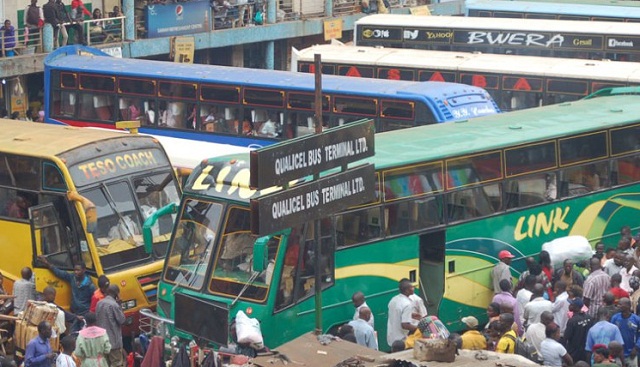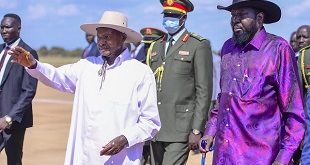
Kampala, Uganda | THE INDEPENDENT | The Ministry of Works and Transport is finally moving to tighten controls over operations of public transport in Uganda, more than 18 years after government liberalized the sector.
The latest move will streamline mechanisms for setting fair and reasonable transport fares on all the major roads in the country. Currently, transport fares are set by Bus Owners and Operators Associations operating on the major routes.
The Associations include Northern Route Bus Owners and Operators Association, Eastern Route Bus Owners and Operators Association and the Western Route Bus Owners and Operators Association. They jointly set transport fares during meetings convened by Uganda Bus Owners Association.
Geoffrey Nfite, a booking Clerk with Gulu Luxury Coaches says major factors the associations consider include hikes in market fuel prices, cost of bus spare parts and the number of passengers. He says the last time the association set transport fares was on March 20th 2018.
Nfite says fluctuations in rates of income tax, insurance and the Passenger Service Licensing fees also trigger increment in transport fares. He explains that the cost of licensing a bus now stands at 2.9 million shillings.
Mike Lia, the assistant publicity secretary for Uganda Bus Owners Association says different regions independently sit to decide their different rates. He says the transport regulation and Road Safety Authority lacks mandates to determine the rates.
Lia says the Uganda Bus Owners Association has maintained the fares. He says major factors responsible for increase in transport fare is sharp rise in fuel prices with consequential impacts on the cost of spares and other commodities in the markets.
For instance, the current rates being used on the and Eastern Routes include 10,000 shillings for Kampala to Jinja, 25,000 shillings for Kampala to Soroti, 20,000 shillings for Kampala to Mbale and 30,000 for Kampala to Serere district. Those on the Northern route decided during the March 20th, 2018 meeting held at Namayiba Hotel in Kampala that Kampala to Gulu is charged 25,000 shillings while Kampala to Kotido 40,000 shillings.
Winston Katushabe, the Commissioner of Transport and Road Safety in the Ministry of Works and Transport says government appreciates the fact that these rates are abnormally high and that it took time to regulate them. He says there are now new measures being developed under an on-going processes drafted in 2018 to amend the Uganda Transport and Road Safety Act.
Katushabe says the draft is currently being polished before the First Parliamentary Counsel after Cabinet endorsed it last December. It is strongly believed that the draft bill will proceed to Parliament for discussion by end of May 2019.
Under the framework, he says, taxis and bus companies will be required to organize themselves in SACCOs which will competitively bid to operate on designated routes. The other is to replace the pioneer mass transport system with Rapid Bus Transport System in Kampala.
Katusahbe says the ministry is confident that the new strategy will eliminate exploitation of members of the public and increase profitability to sector players. He says government has found it difficult to regulate the exorbitant transport fares on major roads in isolation because of the slow pace the industry took to grow since it was liberalized 18 years ago adding that the time is now ripe for application of regulation.
According to Katushabe, the Ministry is implementing the strategies in phases that will culminate into holistic regulation of the sector.
In the meantime, the Ministry has introduced the use of badges among Bus drivers to keep out untrained personnel from manning large passenger service vehicles. The other is that all bus companies are required to adequately rest their drivers to avoid fatigue-related accidents on the major roads.
“Having multiple drivers in a company is now a precondition for licensing of buses. We do this to ensure that drivers are adequately rested and vehicles are kept under good mechanical conditions before they make return journeys” Katushabe explained to URN saying that companies which violate the requirement have their licenses withdrawn.
*****
URN
 The Independent Uganda: You get the Truth we Pay the Price
The Independent Uganda: You get the Truth we Pay the Price



